High Blood Pressure:
Mineral Magic Can Bring It Down
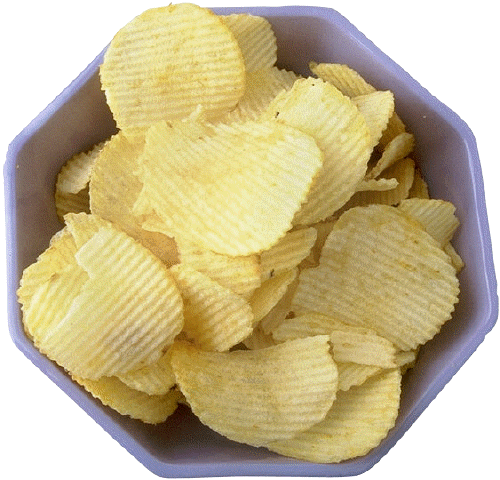
You're not going to eat those potato chips. You refuse. You push them off your plate where the waiter has artfully piled them, dump them onto an extra plate and ask that they be removed from sight.
This isn't some little diet trick du jour, either. You're fighting in favor of your blood pressure. Your father's doctor said that salty foods such as potato chips, nuts and lunch meats raised your father's blood pressure and helped set him up for his stroke. So not even one small salted chipette will find its evil little way into your mouth to cause the same problem. It's simply not going to happen to you.
Trying to lower high blood pressure so that you don't end up with a stroke, a heart attack or kidney disease---the three major health consequences of high blood pressure---is wonderful. But this particular anti salt strategy may backfire, because some researchers are now saying that by avoiding salt, you may be creating the very health threat that you're trying to avoid. Instead, high blood pressure is just as likely to be caused by low levels of potassium, magnesium and calcium in your body.
Taking a New Look at Salt
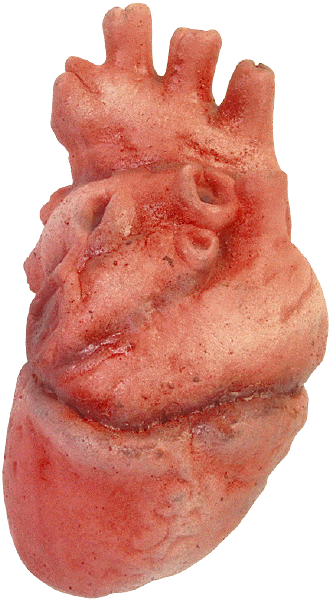
Until a few years ago, no one really had a firm handle on what makes blood pressure rise and fall. But that's beginning to change.
"A rise in blood pressure means you need to add minerals to your diet, not cut back on salt," says David McCarron, M.D., professor of medicine and head of the Division of Nephrology, Hypertension and Clinical Pharmacology at Oregon Health Sciences University in Portland. "Tragically, the idea that salt is bad for your blood pressure is one of the most generally accepted notions out there."
It's constantly repeated because an entire generation of doctors didn't have the research that now clarifies the connection between salt, which is about 40 percent sodium and 60 percent chloride, and other nutrients. Dr. McCarron explains that in addition to putting people on medication, many doctors consistently handed out just one piece of advice when confronted with a blood pressure reading that exceeded 140/90: Ditch the salt.
"It's tough to get a consensus in this area because the effects of sodium chloride on blood pressure are quite complex," says Dr. McCarron. "But our lab has found that people who experience rises in blood pressure when they take sodium chloride are probably responding to sodium only in the absence of potassium, calcium and magnesium."
"In other words, too much salt is not and never has been what jacks up your blood pressure," says Dr. McCarron. The problem is just as likely to be too little potassium, calcium and magnesium.
Salt: The Misunderstood Mineral

In retrospect, it's not hard to understand how doctors misread the effects of sodium chloride on blood pressure.
Nobody knew what causes most cases of high blood pressure. So in trying to figure what sends blood pressure through the roof, scientists conducted a series of studies in which they took blood pressure readings for a group of people, asked them about what they did or didn't eat, then ran the answers through a computer.
The result seemed to indicate that people who used a lot of salt frequently had slightly higher blood pressure readings. Actually, heavy salt users had nearly the same blood pressure readings as those who tended to restrict their salt intakes. In fact, so many heavy salt users---up to 67 percent in one study---remained unaffected when placed on a very low salt diet that researchers began to wonder if some people are salt-sensitive while others aren't.
Some people are, says Dr. McCarron. "But," he adds, "it's more likely the relative deficiency of other minerals in the diet---potassium, calcium and magnesium---that determines who is and who is not."
How is he so sure?
Part of the answer is that putting people on low-salt diets has not had the extensive impact on reducing the health consequences of high blood pressure that scientists had expected.
In a study at the Medical University-Polyclinic in Bonn, Germany, researchers put 147 men and women between the ages of 19 and 78 with normal blood pressure on a seven day salt-restricted diet of 1,000 milligrams, or less than ½ teaspoon, a day. The researchers then compared the subjects' blood pressure readings with their readings after a seven-day high-salt diet of more than 15,000 milligrams, or about 7½ teaspoons, a day.
Food Factors
Although vitamins and minerals clearly play significant roles in preventing and perhaps treating high blood pressure, there are other dietary strategies that can also help keep your blood pressure where it belongs.
Cut calories. Obesity is one of the biggest risk factors for high blood pressure, reports the National Heart, Lung and Blood Institute in Bethesda, Maryland. It can make you two to six times more likely to develop the condition than if you were at a healthier weight. That's why the institute suggests that you lose weight by cutting 500 calories a day from your diet and that you find ways to burn off even more calories by becoming more physically active.
Eat fish.
Fatty fish such as mackerel and salmon contain omega-3 fatty acids, a type of fat that, in large amounts, seems to reduce blood pressure. In at least one study, people with mild high blood pressure who took six grams of fish oil per day for 12 weeks found their blood pressure sank an average of two to four points. The National Heart, Lung and Blood Institute recommends that you chow down on fatty fish as often as possible. Provided the fish is not fried, the added fat isn't a harmful addition to your total fat budget, since it would likely replace unhealthy saturated fat.
Nix the drinks. The effect of alcohol on blood pressure is so significant that some researchers believe that it accounts for up to 5 percents of all cases of high blood pressure. Researchers at Harvard Medical School found that among 3,275 nurses who were 34 to 59 years old at the start of a four-year study, those who drank two to three alcoholic beverages daily increased their risk of high blood pressure by 40 percent. If you do drink, the National Heart, Lung and Blood Institute suggests that you limit your intake to two of less drinks a day.
Cut down on sugar. "Work from my laboratory shows that sugar---the kind in your sugar bowl and in foods---raises blood pressure,"says Harry Preuss, M.D., professor of medicine at Georgetown University School of Medicine in Washington, D.C. Researchers don't yet know how much sugar it takes to cause a problem "But it's always a good idea to limit sugar," Dr. Preuss advises.
The researchers found that the salt-restricted diet did in fact lower blood pressure
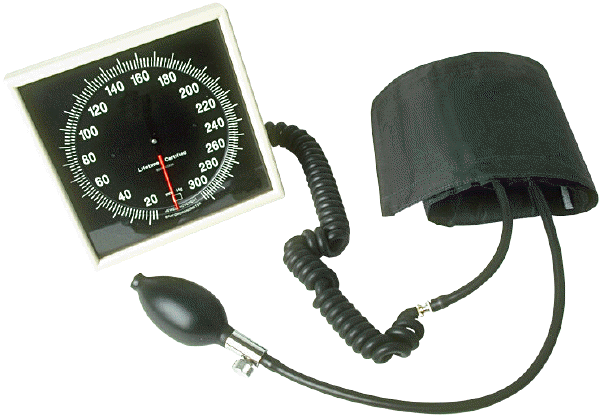 in 17 percent of the people. But blood pressure readings remained largely unaffected in 67 percent, while blood pressure went up in 16 percent. What's more, levels of LDL Cholesterol, the "bad" kind of cholesterol that sets the stage for heart disease and stroke, went up significantly.
in 17 percent of the people. But blood pressure readings remained largely unaffected in 67 percent, while blood pressure went up in 16 percent. What's more, levels of LDL Cholesterol, the "bad" kind of cholesterol that sets the stage for heart disease and stroke, went up significantly.
The bottom line? A low-salt diet did not appear to lower blood pressure in approximately 80 percent of those in the German study. Instead, this research showed that such a diet may be just as likely to raise blood pressure as to lower it in people with normal blood pressure, and it may raise LDL cholesterol levels enough to increase the risk of heart disease.
In fact, that could be the reason that a study at Albert Einstein College of Medicine and Cornell University Medical College, both in New York City, showed that men with high blood pressure who ate the least salt (about 5,000 milligrams, or 2½ teaspoons) each day were four times more likely to have a heart attack---the very health consequence that a low-salt diet is supposed to prevent---than those who ate more than twice as much salt every day. While too few women were studied to draw a firm conclusion, the same pattern may be the case for them, too, the researchers observed.
It just doesn't make sense that sodium, a mineral that the body requires to survive, could be so harmful, says Dr. McCarron.
"There's a biological need for sodium chloride," he explains. "In my view, healthy people appear to seek between 3,500 and 4,200 milligrams in their diets. Without any salt at all, your blood pressure would be very low, and you could lose consciousness.
"You even have physiological mechanisms---whole systems of hormones---to conserve sodium chloride because it's so necessary," says Dr. McCarron. These systems wouldn't have evolved unless you needed the nutrient, he explains. Nor would the amount of salt that people eat remain relatively constant from person to person, even across international borders.
 Although some folks have tried to blame processed foods such as lunch-meats and fast-food megaburgers for the roughly 3,500 milligrams of salt that most of us eat every day, the truth is that people eat pretty much the same amount of salt, no matter what foods are commonly consumed. "Some reports show that the average American salt intake hasn't changed much since the 1870s, well before canned soups or fast-food restaurants," says Dr. McCarron.
Although some folks have tried to blame processed foods such as lunch-meats and fast-food megaburgers for the roughly 3,500 milligrams of salt that most of us eat every day, the truth is that people eat pretty much the same amount of salt, no matter what foods are commonly consumed. "Some reports show that the average American salt intake hasn't changed much since the 1870s, well before canned soups or fast-food restaurants," says Dr. McCarron.
"Every scientific survey, and not just in the United States but also in Mexico, Europe, Canada and Asia, shows that there is a very tight clustering of the population's sodium intake," says Dr. McCarron. "Every group of people takes in between 3,500 and 4,200 milligrams of sodium."
The fact is that "if you turn the human animal loose on this planet to forage for food, for whatever reason, that's the intake that he seeks," says Dr. McCarron.
The Power of Potassium
Although the body clearly needs a certain amount of sodium to maintain blood pressure, it also needs certain levels of other minerals, including potassium, to keep sodium levels in the body from getting too high, explains Dr. McCarron.
"Most researchers agree that we should get the Daily Value of 3,500 milligrams of potassium a day," say Dr. McCarron. But does that level lower blood pressure?
Yes. In a three-week study of 87 African-American men and women at the Johns Hopkins Medical Institutions in Baltimore, researchers took blood pressure measurements, divided the group in half, then gave potassium supplements of 3,120 milligrams a day to one group and placebos (fake pills)to the other.
The result? Systolic blood pressure, the top number in a blood pressure reading, went down an average of 6.9 points in the people who received the supplements. Diastolic pressure, the bottom number, went down an average of 2.5 points. There were no blood pressure changes in the people who took the placebos.
No one really know exactly how potassium lowers blood pressure, reports Frederick L. Brancati, M.D., assistant professor of medicine and epidemiology at Johns Hopkins, who led the study. One theory suggests that potassium relaxes small blood vessels, while another holds that it helps the body eliminate water and salt.
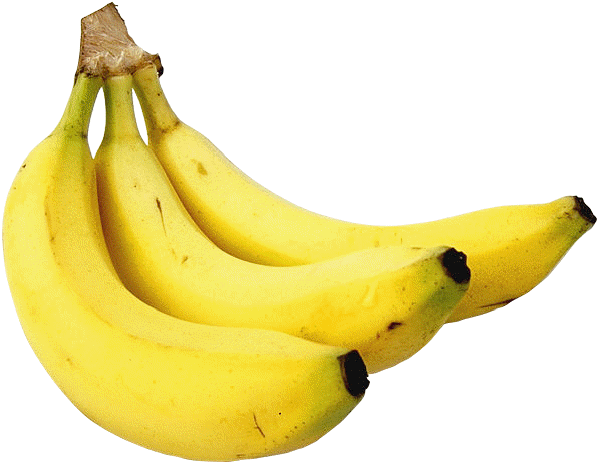
Since most folks get only around 2,600 milligrams of the nutrient a day, however, Dr. McCarron suggests that most of us need to add at least three servings of potassium-rich fruits and vegetables, such as bananas and potatoes, as well as dairy products (a glass of milk has nearly as much potassium as a banana) to our diets every day.
People who have diabetes or kidney problems or who are taking anti-inflammatory drugs, potassium-sparing diuretics (water pills), ACE inhibitors or heart medicines such as Heparin should not supplement potassium with out medical supervision.
Along with potassium, magnesium seems to play an important role in keeping blood pressure down, particularly if you're magnesium-deficient to begin with.
In a study in Sweden of 71 people with mildly elevated blood pressure, researchers found that giving about 350 milligrams of magnesium to those who had deficiencies lowered their blood pressure readings several points.
How does it work in people with high blood pressure who may not have deficiencies?
Some studies indicate that it won't do much of anything, although at least one indicates that it might. That study, conducted by researchers in Belgium and the Netherlands, looked at the blood pressure readings of 47 women with high blood pressure. When the women were given 485 milligrams of magnesium every day for six months, their systolic readings dropped an average of 2.7 points, while their diastolic readings dropped 3.4 points. A few of the women had low levels of magnesium in their blood, but most did not.
That drop doesn't sound like a lot. But to someone with borderline-high blood pressure, it can mean the difference between taking medication and eating salmon, which is rich in magnesium.
Most people should get between 300 and 400 milligrams of magnesium daily to keep their blood pressure on an even keel, says Dr. McCarron. (The Daily Value for this mineral is 400 milligrams.) Only adult males in the United States get the full amount; women ages 30 to 60 get between 220 and 260 milligrams a day. Good food sources of magnesium are green, leafy vegetables, fish, whole grains, rice, legumes and nuts.
If you have heart of kidney problems, you should check with your doctor before taking supplemental magnesium.
Calcium for Kids and Moms

Although some studies have indicated that calcium might play a role in keeping blood pressure under control, a panel of experts at the National Institutes of Health in Bethesda, Maryland, has determined that most studies indicate the mineral's role is probably minor and that a recommendation to increase calcium intake for blood pressure control is unwarranted for most people at this time.
"The two exceptions may be pregnant women who suffer from high blood pressure during their pregnancies and children who are calcium-deficient," says Matthew W. Gillman, M.D., assistant professor of ambulatory care and prevention at Harvard Medical School, who has investigated the relationship between calcium and blood pressure.
In a study at the University of Florida Health Science Center/Jacksonville, for example, researchers found that 2,000 milligrams of calcium a day reduced the onset of high blood pressure in women during pregnancy by 54 percent.
Until scientists more clearly define whom calcium does and does not help, however, everyone should make sure to get the optimum daily intake, says Dr. McCarron.
The National Institutes of Health recommends the following optimum daily intakes: Men, ages 25 to 65: 1,00 milligrams Women, ages 25 to 50: 1,000 milligrams Pregnant and nursing women: 1,200 to 1,500 milligrams Women at menopause (ages 51 to 65) who are not taking estrogen: 1,500 milligrams Men and women over age 65: 1,500 milligrams Unfortunately, federal surveys indicate that women ages 25 to 50 get only between 685 and 778 milligrams of calcium a day through diet. Women over age 50 get between 600 and 700 milligrams daily. Adult men get closer to the mark, generally getting between 700 and 1,000 milligrams daily.
A Role for Vitamin C
A number of studies indicate that vitamin C may also be involved in reducing blood pressure.
In analyzing the results of four separate studies conducted at Tufts University in Medford, Massachusetts, researchers found that the less vitamin C in the diet, the higher blood pressure is likely to be.
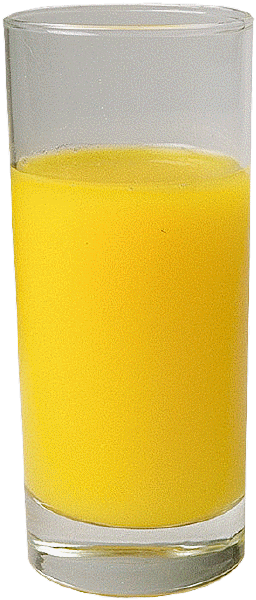
In one of these studies, researchers found that some individuals who consumed 240 milligrams or more of vitamin C a day were 50 percent less likely to have high blood pressure than those consuming less than 60 milligrams a day.
New studies to test whether adding vitamin C to the diet can actually lower blood pressure are under way. In the meantime, the level of vitamin C used in the Tufts study, in the neighborhood of 240 milligrams a day, is considered safe, says Dr. McCarron. (Although the Daily Value is only 60 milligrams, consuming 240 milligrams every day is well within the safe limit for vitamin C.)
Prescriptions for Healing
Several nutrients may play roles in keeping a lid on blood pressure. Here are the amounts that researchers recommend you get from dietary sources, if possible, or from vitamin and mineral supplements, if necessary.
Nutrient: Calcium Daily Amount: 1,000 milligrams for men ages 25 to 65, for women ages 25 to 50 and for women at menopause (ages 51 to 65) who are taking estrogen. 1,200-1,500 milligrams for women who are pregnant or nursing. 1,500 milligrams for women at menopause (ages 51 to 65) who are not taking estrogen and for men and women over age 65.
Nutrient: Magnesium Daily Amount: 300-400 milligrams.
Nutrient: Potassium Daily Amount: 3,500 milligrams.
Nutrient: Vitamin C Daily Amount: 240 milligrams.
MEDICAL ALERT

If you have heart of kidney problems, you should check with your doctor before taking supplemental magnesium.
People who have diabetes or kidney problems or who are taking anti-inflammatory drugs, potassium-sparing diuretics, ACE inhibitors or heart medicines such as Heparin should not supplement potassium with out medical supervision.
Return to Main Cardiovascular Disease Page